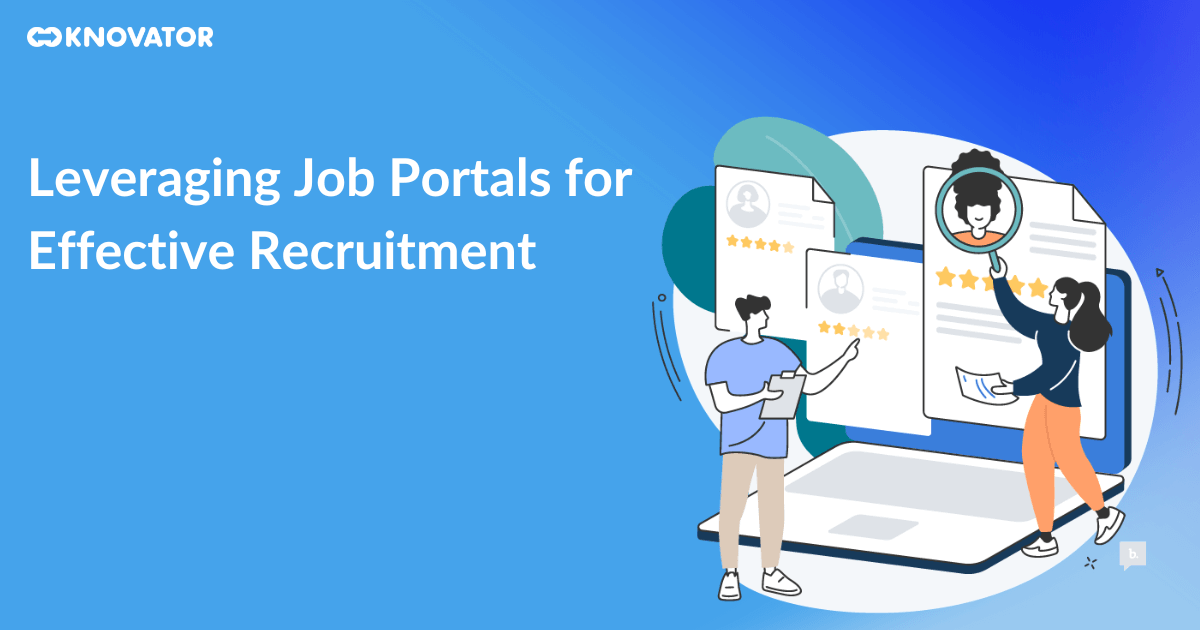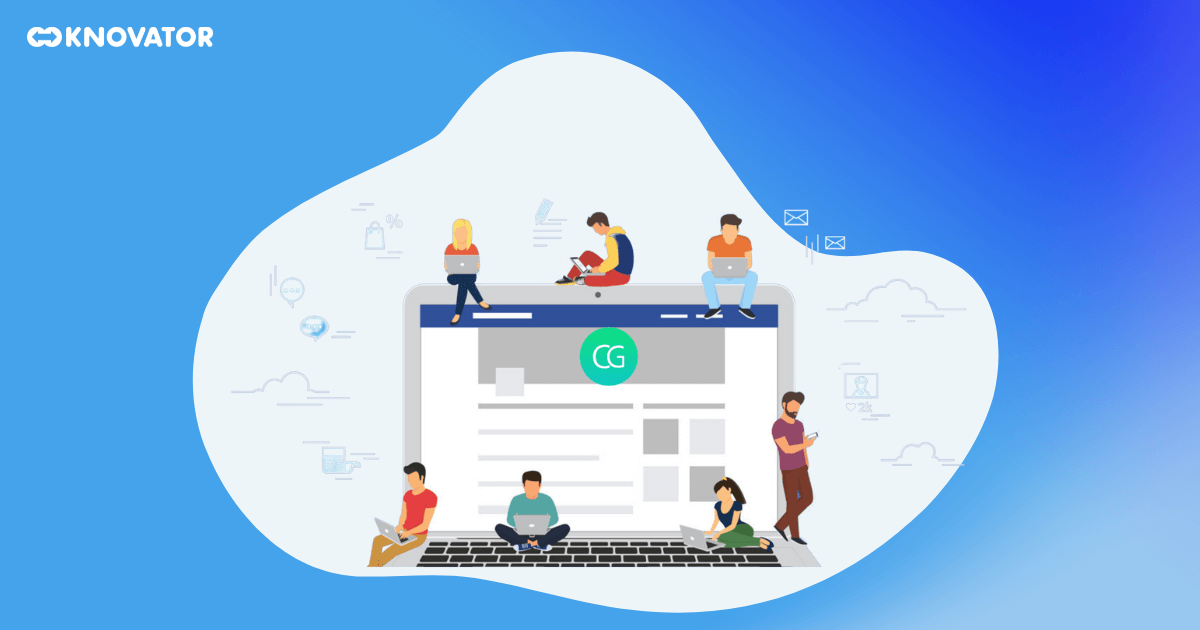Leveraging Job Portals for Effective Recruitments

Job portals, or job boards, are online platforms where employers can advertise jobs and search for resumes. They are integral to most hiring processes, and using them effectively can result in qualified candidates for relatively low costs. To know more about job portals, click on the link- things you should know about job portal.
Choosing the Right Job Boards

Understand Your Needs: The first step involves understanding your hiring needs. Are you looking for a specific skill set, experience level, or location? Different job boards cater to different needs, so it’s important to choose the ones that align with yours.
Consider the Type of Job Board: There are general job boards like Indeed and Monster that cater to several industries and roles. Then there are niche job boards like Dice (for tech jobs) and Behance (for creative jobs) that cater to specific industries. Consider using a mix of both depending on your needs.
Look at the User Base: Consider the user base of the job board. Is it popular among the type of candidates you’re looking for? A job board that is popular among your target candidates is likely to yield better results.
Consider the Cost: While there are many free job boards available, some may require a fee for services like premium job postings or access to their resume database. Consider your budget and the potential ROI.
Check the Features: Look at the features offered by the job board. Does it offer services like resume screening, applicant tracking, or analytics? These features can save you time and make the recruitment process more efficient.
Test and Evaluate: Finally, don’t be afraid to test out different job boards and evaluate their effectiveness. Keep track of key metrics like the number of applications, quality of candidates, and hires made from each job board to determine which ones work best for you.
Remember, the goal is to find quality candidates in the most efficient and cost-effective way possible. By carefully considering your needs and the features of different job boards, you can make informed decisions that will help you achieve your recruitment goals.
Also Read : Best Job Board Software Guide
Crafting Effective Job Descriptions

Job Title: Keep it simple, specific, and free of jargon. The job title should accurately reflect the nature of the job and its level within the organization.
Job Summary: Provide a brief overview of the job, including its purpose and how it contributes to the organization’s goals. This section should be engaging and give potential candidates a clear idea of the role.
Responsibilities and Duties: List the key tasks and responsibilities associated with the job. Be specific and use bullet points for clarity. This section should give potential candidates a realistic idea of what their day-to-day work will look like.
Qualifications and Skills: Outline the necessary qualifications, skills, and experience for the job. This may include education, certifications, technical skills, soft skills, and years of experience.
Work Environment: Describe the work environment, including the physical demands of the job, travel requirements, and any other relevant details.
Company Overview: Give a brief overview of your company, including its mission, values, and culture. This can help potential candidates determine if they would be a good fit for your organization.
Equal Opportunity Statement: Include a statement affirming your company’s commitment to equal employment opportunity. This can help in building a diverse and inclusive workplace.
Remember, an effective job description is not just a list of duties and requirements. It’s a marketing tool that can attract the right candidates to your organization. So, make it engaging, informative, and reflective of your company’s culture.
Also Read: Explore the 11 Best Job Posting Sites for Recruiters
Showcasing Your Employer Brand on Job Portals
Employer branding is crucial to attracting top talent. It’s all about how you present your company to potential employees. Here’s how you can effectively showcase your employer brand on job portals:
Create a compelling company profile: Your company profile is the first thing potential candidates see. Ensure it’s engaging and accurately represents your company’s culture and values. Include information about your mission, vision, and work environment.
Use high-quality media: Use high-quality images and videos to give potential candidates a glimpse into your company. This could include pictures of your office, team events, or even a video tour of your workspace.
Highlight your benefits and perks: Do you offer unique benefits or perks? Make sure to highlight them. This could include flexible work hours, professional development opportunities, health benefits, or anything else that sets your company apart.
Engage with reviews: If the job portal allows for reviews, make sure to engage with them. Respond to negative reviews professionally and thank employees for positive reviews. This shows that you value feedback and are committed to improving.
Showcase employee stories: Sharing stories from your current employees can give potential candidates a real insight into what it’s like to work for your company. This could be in the form of blog posts, videos, or quotes.
Remember, your employer brand is all about showing potential candidates why your company is a great place to work. Make sure to keep your brand consistent across all job portals to create a strong and unified image.
Sourcing Resumes on Job Portals

Use Advanced Search Features: Most job portals offer advanced search features. You can use these to narrow down your search based on certain criteria such as location, experience, skills, and more. This can help you find the most relevant candidates quickly.
Leverage Boolean Search: Boolean search enables you to combine keywords with operators such as AND, NOT and OR to produce more relevant results. For example, a Boolean search could be “programmer AND Java, NOT Python”. This would give you results for programmers who know Java but not Python.
Understand Resume Databases: Job portals often have vast resume databases. Understanding how these databases work can help you source resumes more effectively. For example, some job portals prioritize resumes based on how recently they were updated. So, you should focus on those candidates who have recently updated their profiles.
Consider the Fees: Some job portals charge fees for accessing their resume databases. Make sure you understand these fees before you start sourcing resumes. It’s also worth considering whether the cost is worth the potential value you could get from the candidates you find.
Remember, sourcing resumes is just the first step. Once you have a list of potential candidates, you need to evaluate them to see if they’re a good fit for your company and the role you’re trying to fill. This involves reviewing their resumes, conducting interviews, and possibly even doing some pre-employment testing. So, make sure you have a solid process in place for all these steps.
The Role of Recruiting Software

One of the key features of job boards is the ability to post job vacancies. This feature allows recruiters to reach a wide audience of potential candidates. The job postings can be customized to include all the necessary details, such as the job description, qualifications required, location, and salary range.
Another important feature is the resume database. This allows recruiters to search for candidates based on specific criteria, such as skills, experience, location, etc. This feature can be particularly useful for finding passive candidates who may not be actively looking for a job but are open to opportunities.
Job boards also often have features for tracking applications and managing candidates. These features allow recruiters to keep track of all the applications they receive, schedule interviews, and manage the entire recruitment process from one place.
Furthermore, some job boards offer features for facilitating referrals. Employee referrals are a valuable source of high-quality candidates, and a referral program can be easily managed through the job board.
Lastly, job boards can often be integrated with other HR systems, like applicant tracking systems (ATS) and HRIS. This allows for seamless data transfer and further streamlines the recruitment process.
Explore how recruitment solutions can help.
In conclusion, leveraging the features of a job board like Artha can significantly improve the efficiency and effectiveness of the recruitment process. It’s all about understanding and using the features available to their full potential.
Exploring Other Job Portals

LinkedIn, for instance, is a global networking platform that also functions as a job portal. It allows recruiters to post jobs, search for candidates, and even reach out to them directly. LinkedIn’s advanced search filters allow recruiters to find candidates based on their skills, location, industry, and more. It also offers a ‘LinkedIn Recruiter’ tool that provides advanced search and collaboration tools for sourcing candidates.
FlexJobs is another job portal that focuses on remote and flexible jobs. While it may not be the first choice for all recruiters, it’s an excellent platform for companies looking to hire remote workers or offer flexible working conditions. FlexJobs screens all job postings to ensure they offer some level of flexibility, which can be a great selling point for potential candidates.
Naukri.com is one of India’s largest job portals. It offers several services to recruiters, including job postings, resume database access, and response management tools. Naukri.com also provides a ‘Recruiter Connection’ feature, allowing recruiters to connect directly with job seekers.
Each of these job portals has its unique features and benefits. The key is to understand your recruitment needs and choose the portals that best meet those needs. Whether it’s the wide reach of LinkedIn, the flexibility of FlexJobs, or the comprehensive services of Naukri.com, leveraging these job portals can significantly enhance your recruitment process.





